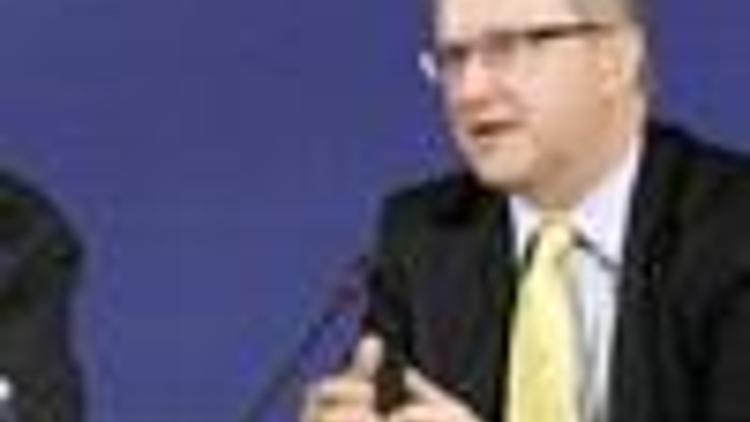Rehn says Turkey has "plenty of work" to do in EU accession
Güncelleme Tarihi:

WASHINGTON - Turkey must speed up long-delayed reforms to keep its bid to join the European Union on track amid fatigue over expanding membership of the 27-nation bloc, the EU's enlargement chief said on Thursday.
EU Enlargement Commissioner Olli Rehn said there was "plenty of work" for
"Turkey needs to seriously resume reforms enhancing fundamental freedoms," Rehn told Reuters in an interview in Washington, where he was meeting U.S. State Department and World Bank officials to discuss a range of issues, including Turkey.
He said
"It was last promised in January and then by April and we have not seen it. Therefore we cannot open a chapter (negotiations) on social policy in employment as there is no agreement," Rehn said.
In
Opinion polls show many Turks feel the EU has cooled toward the country and that the bloc will not accept
'BREAK THAT NEGATIVE CIRCLE'
Rehn conceded the EU must work harder to counter doubts inside
"The way to break that negative circle is to be fair and firm," he said. "The EU must stick to its commitment to
Rehn said several negotiating areas, or chapters, were expected to open in the final month of the
On taxation, for example, agreement was near, bringing to 11 the number of chapters opened so far of the 35
The EU began accession talks with
Rehn said the financial crisis, European Parliamentary elections and other domestic concerns had pushed enlargement down the EU's agenda.
"There is a certain degree of enlargement fatigue that has developed in

